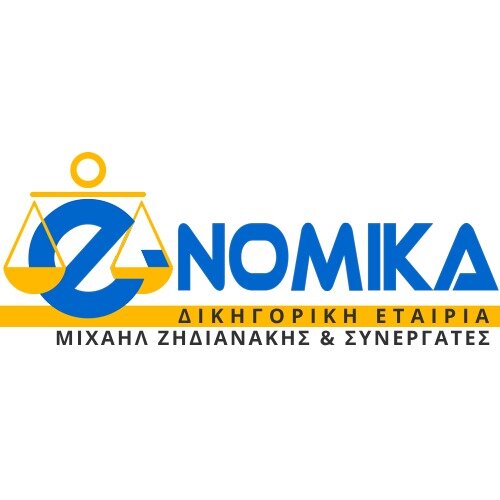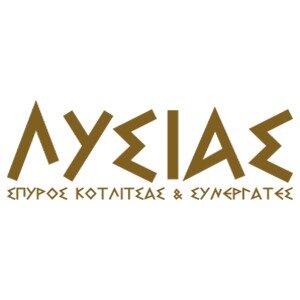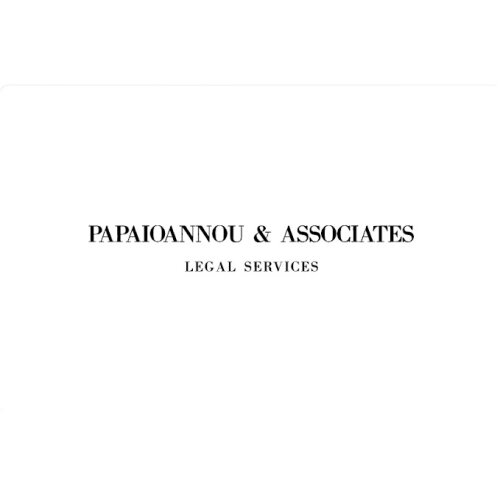Best Inheritance Law Lawyers in Thessaloniki
Share your needs with us, get contacted by law firms.
Free. Takes 2 min.
List of the best lawyers in Thessaloniki, Greece
1. About Inheritance Law in Thessaloniki, Greece
Inheritance law in Thessaloniki operates under the Greek Civil Code, which governs how a deceased person’s assets are distributed. The process typically involves wills (diathees) or intestate succession when no will exists. Local courts and notaries play central roles in confirming heirs and transferring ownership of real estate and movable property.
In Thessaloniki, probate matters and the legal steps to transfer assets are anchored in the city’s Court of First Instance system and its associated notarial processes. If a valid will exists, a notary can administer the estate and ensure proper distribution; if there is no will, the heirs must pursue intestate succession through the appropriate court procedures. The urban and rural assets in the Thessaloniki region require careful coordination with land registries and tax authorities.
Common elements in Greek inheritance practice include identification of heirs, valuation of assets, settlement of debts, and the establishment of rights such as usufruct for a surviving spouse. The use of a local solicitor or attorney familiar with Thessaloniki’s courts and notary networks can help prevent delays and ensure compliance with regional requirements.
2. Why You May Need a Lawyer
Lawyers are frequently needed to navigate specific, real-world inheritance situations in Thessaloniki. For example, if you are an heir disputing a will, you need precise interpretation of the document and evidence of its validity. In cases involving real estate in Thessaloniki, a lawyer helps ensure proper transfer at the Land Registry and combats any irregular recordings.
Another common scenario is when the estate includes foreign assets or heirs in another country. A local attorney coordinates cross-border issues, handles currency considerations, and aligns Greek procedures with other jurisdictions. If minor children are involved, counsel is essential to protect their interests and set up guardianship or trusteeship arrangements.
Finally, when tax obligations arise from inheritance, a solicitor provides guidance on Greek tax rules and timing for filings. A Thessaloniki lawyer can also help in negotiations among multiple heirs and in contesting or defending a will in court when necessary.
3. Local Laws Overview
The main rules come from the Greek Civil Code (Αστικός Κώδικας), which covers inheritance, wills, and succession rights. This code sets out how forced heirs are protected and how shares are allocated among relatives. It also governs the formal validity of wills and the procedures for proving acts of disposition.
The Civil Procedure Code (Κώδικας Πολιτικής Δικονομίας) governs the procedural steps for probate, including court filings, notices to creditors, and appeals. This code determines how and when heirs can bring challenges and how tribunals manage estate administration. Notaries remain a critical part of the process for drafting and authenticating will instruments and related estate documents.
Tax considerations related to inheritance are addressed under the Greek tax framework, with guidance provided by the tax authority. In practice, heirs must consider tax obligations and reporting requirements as part of the estate settlement. Recent digitization efforts by the government aim to streamline some probate steps via online services.
Recent reforms emphasize digital services for civil procedures and faster document processing in inheritance matters. Thessaloniki residents should monitor gov gr updates for changes to filing and service availability.
4. Frequently Asked Questions
What is inheritance law in Greece and Thessaloniki?
Inheritance law in Greece governs how a deceased person’s estate is distributed to heirs. Thessaloniki follows the same civil law framework, with local courts handling probate and notaries facilitating will execution and asset transfers. The main principles include validity of wills and protection for forced heirs.
How do I start a probate process in Thessaloniki?
Begin by gathering the deceased’s death certificate, will (if any), property titles, and creditor statements. Contact a Thessaloniki lawyer or notary to determine whether probate will be handled by a notary or by the court, based on the estate’s complexity and asset types. The next steps typically involve filing with the appropriate authority and notifying potential heirs.
What documents are needed to begin probate?
Common documents include the death certificate, a valid identification for heirs, property deeds, a will if present, and a list of debts. If real estate is involved, copies of title deeds and tax records are essential. A lawyer can prepare checklists tailored to your case.
Do I need a local Thessaloniki lawyer or can I hire remotely?
Local presence is advantageous for coordinating court filings, notary services, and local land registry requirements. A Thessaloniki attorney can attend hearings and manage in-person document submission. Remote consultations may be possible for initial advice, but in-person steps are usually required for filings.
How long does probate typically take in Greece?
Probate duration varies with complexity. Simple cases may take 6-9 months, while estates with real estate, debts, and multiple heirs can take 12-24 months or longer. Local court backlogs and document availability significantly influence timelines.
How much does probate cost in Thessaloniki?
Costs depend on factors such as estate size, attorney rates, notary fees, and court charges. Expect professional fees for advice, document preparation, and representation, plus notary and filing costs. A lawyer can provide a written estimate after reviewing your documents.
What is forced heirship and how does it affect me?
Forced heirs are close relatives who are protected under Greek law and cannot be disinherited entirely. The distribution must respect these rights, which can affect how the estate is divided even if a will exists. An attorney explains the protected portions and helps plan accordingly.
How is a will validated in Thessaloniki?
A will in Greece is typically authenticated by a notary or validated by a court if contested. The validity depends on formal requirements, signatures, and witness declarations. A lawyer helps ensure the will meets legal standards and is correctly registered if required.
Can I contest a will in Greece?
Yes, you can challenge a will on grounds such as lack of capacity, coercion, fraud, or improper formalities. Contesting a will requires evidence and representation by a qualified attorney. The case would proceed through the appropriate court channels in Thessaloniki.
How are cross-border inheritances handled in Thessaloniki?
Cross-border inheritances involve assets in Greece and abroad. Greek procedures coordinate with foreign jurisdictions, including applicable succession law and tax rules. A local lawyer with international experience can help align Greek filings with other countries’ requirements.
Do I need tax clearance before distributing assets?
Yes, heirs typically address tax matters before final distribution. Greek tax rules may apply to inheritances, and timing for filings matters to avoid penalties. An attorney or tax advisor helps determine the correct tax forms and deadlines.
What is the role of the notary in inheritance matters?
The notary authenticates wills, drafts estate instruments, and may supervise the distribution of assets. Notaries can sometimes handle probate steps without court involvement, depending on the estate. A Thessaloniki notary coordinates with heirs and registries to effect transfers.
Is there a difference between intestate and testamentary succession?
Intestate succession occurs when there is no valid will, and the state's rules determine heirs. Testamentary succession follows a will that specifies asset distribution. In both cases, a lawyer helps protect rights and ensure proper compliance with local procedures.
5. Additional Resources
- gov gr - Official Greek government portal for public services and civil procedures, including inheritance matters and digital submissions. Visit: https://www.gov.gr
- Greek civil law resources - Official legal database for Greek legislation and codes, used for researching inheritance provisions and related acts. Visit: https://www.kodiko.gr
- European Union cross-border inheritance information - Official EU resource explaining how cross-border inheritances are treated within member states and how to coordinate between jurisdictions. Visit: https://e-justice.europa.eu
6. Next Steps
- Define your goal and your relationship to the estate. Note whether you are an heir, potential beneficiary, or executor. This helps you target the right legal approach and timeline.
- Gather all documents related to the deceased and the estate. Collect death certificates, wills, property deeds, debts, and a list of heirs. Organize digital copies for quick reference.
- Identify a qualified inheritances solicitor in Thessaloniki. Prioritize lawyers with probate experience and local court familiarity. Request a written outline of services and fees.
- Schedule an initial consultation to discuss your case. Bring your document pack and ask about expected steps, timelines, and potential outcomes. Ask for a written engagement proposal.
- Decide on the probate path (notary led or court led). Confirm which documents need notary authentication or court filings. Plan for translations if foreign assets are involved.
- Begin the probate process with the chosen path. Your solicitor or notary will prepare forms, file documents, and issue notices to heirs as required. Track progress and respond to any requests promptly.
Lawzana helps you find the best lawyers and law firms in Thessaloniki through a curated and pre-screened list of qualified legal professionals. Our platform offers rankings and detailed profiles of attorneys and law firms, allowing you to compare based on practice areas, including Inheritance Law, experience, and client feedback.
Each profile includes a description of the firm's areas of practice, client reviews, team members and partners, year of establishment, spoken languages, office locations, contact information, social media presence, and any published articles or resources. Most firms on our platform speak English and are experienced in both local and international legal matters.
Get a quote from top-rated law firms in Thessaloniki, Greece — quickly, securely, and without unnecessary hassle.
Disclaimer:
The information provided on this page is for general informational purposes only and does not constitute legal advice. While we strive to ensure the accuracy and relevance of the content, legal information may change over time, and interpretations of the law can vary. You should always consult with a qualified legal professional for advice specific to your situation.
We disclaim all liability for actions taken or not taken based on the content of this page. If you believe any information is incorrect or outdated, please contact us, and we will review and update it where appropriate.















